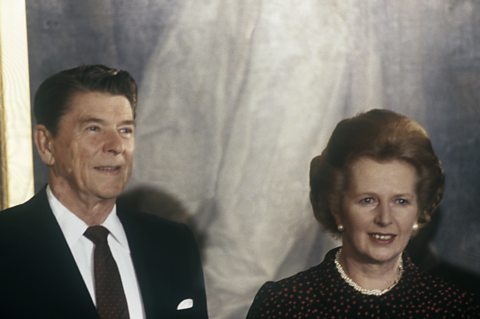The role of Reagan
Ronald Reagan was elected US President in 1980, partly due to his criticism of the Soviet Union and his staunch anti-communist stance.
Reagan was determined to increase pressure on the Soviets and intimidate them into making concessions in the Cold War.
The arms race
Reagan convinced Congress to increase military expenditure by 13 per cent in 1982. The Stategic Defense Initative was considered during this period. There was great concern in the USSR that the Soviets would fall even further behind in the arms race.
New weapons such as the stealth bomber, which could fly undetected by radar, were being developed. Development also continued on the neutron bomb, which could wipe out large numbers of people without destroying buildings and infrastructure.

Reagan did not trust the Soviet leaders and his relationship with Brechnev (the leader prior to Gorbachev) was often fraught.
The President thought the USSR was misusing the period of dУЉtente to increase Soviet power and influence. In 1983, Reagan made a speech where he called the USSR an evil empire
.
Relationship with the UK
Reagan worked closely with UK Prime Minister Margaret Thatcher. She too was critical of the Soviet Union. Both leaders agreed US nuclear weapons could be based in the UK. This increased NATOs ability to land a тfirst strikeт in Europe and added greater pressure on the Soviet Union.